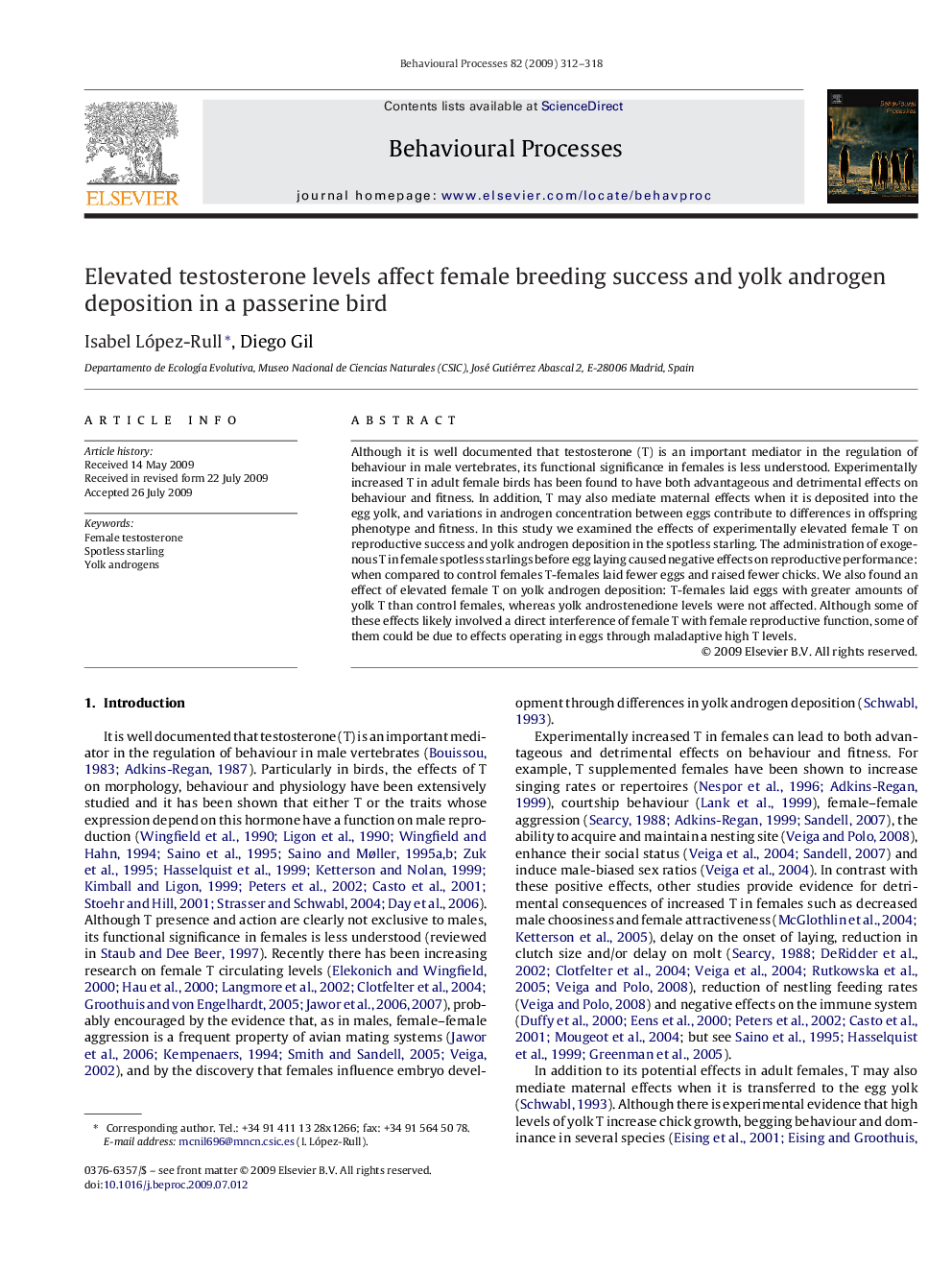| Article ID | Journal | Published Year | Pages | File Type |
|---|---|---|---|---|
| 2427402 | Behavioural Processes | 2009 | 7 Pages |
Although it is well documented that testosterone (T) is an important mediator in the regulation of behaviour in male vertebrates, its functional significance in females is less understood. Experimentally increased T in adult female birds has been found to have both advantageous and detrimental effects on behaviour and fitness. In addition, T may also mediate maternal effects when it is deposited into the egg yolk, and variations in androgen concentration between eggs contribute to differences in offspring phenotype and fitness. In this study we examined the effects of experimentally elevated female T on reproductive success and yolk androgen deposition in the spotless starling. The administration of exogenous T in female spotless starlings before egg laying caused negative effects on reproductive performance: when compared to control females T-females laid fewer eggs and raised fewer chicks. We also found an effect of elevated female T on yolk androgen deposition: T-females laid eggs with greater amounts of yolk T than control females, whereas yolk androstenedione levels were not affected. Although some of these effects likely involved a direct interference of female T with female reproductive function, some of them could be due to effects operating in eggs through maladaptive high T levels.
